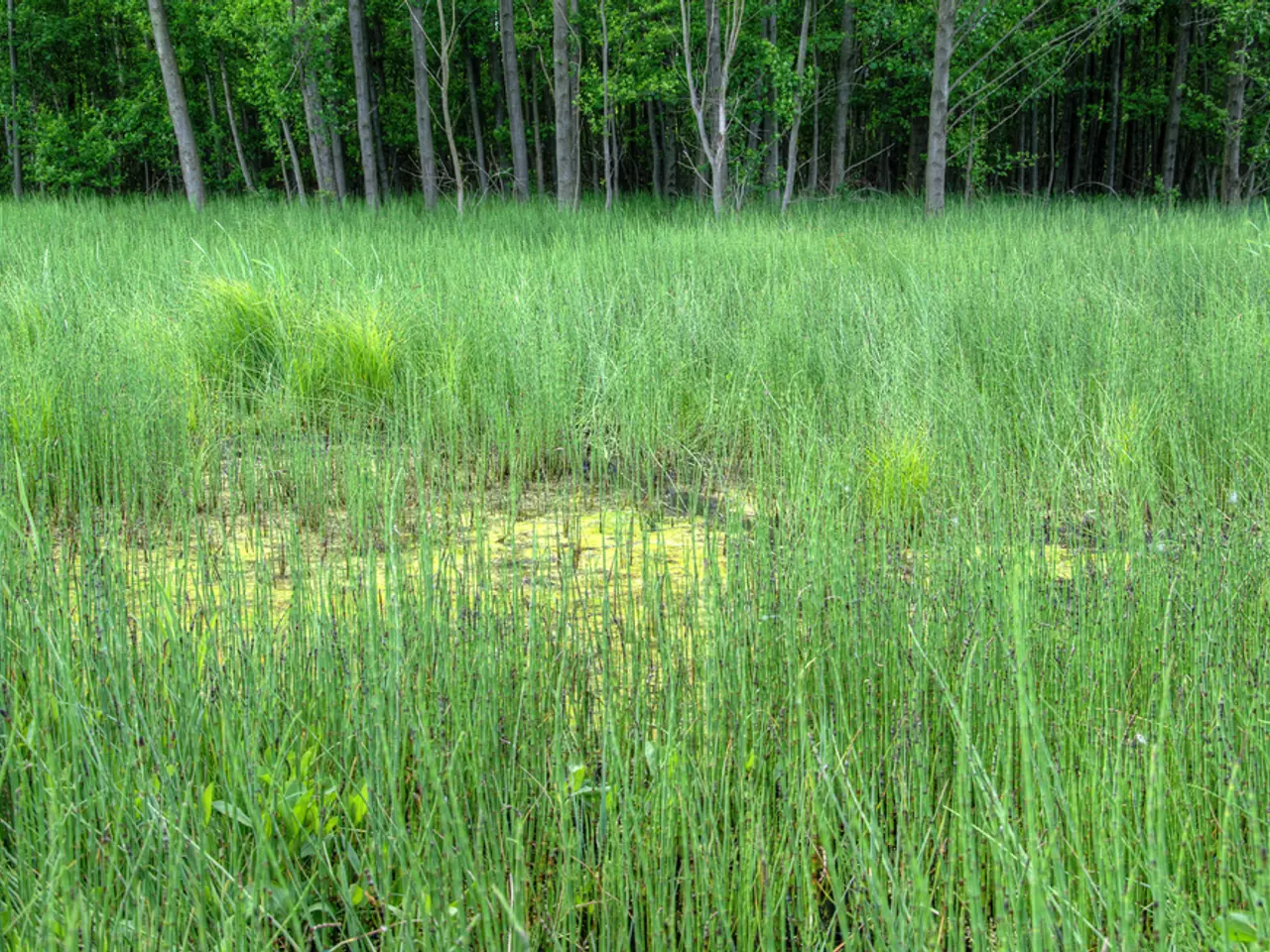Majority of Aid Applicants Prefer Eco-Schemes by 2025, According to New Data
European Union Agriculture Moves Towards Greener Future with Single Application for CAP Aids
In a significant step towards a greener and more sustainable agriculture, the European Union has implemented the single application procedure for direct aid applications from the Common Agricultural Policy (CAP) and rural development interventions. This move, which covers nearly 22.1 million hectares declared, has seen a total of 582,085 farmers and livestock farmers submit applications for CAP aids in 2025.
The single application, which unifies the presentation of direct aid applications, has been instrumental in streamlining the process. Notably, the extension of the deadline until May 31 has allowed all applications to be processed.
The CAP, a policy of the European Union, created in the 1960s, is designed to support farmers, ensure food security, and promote sustainable rural development in member countries. The policy's continuity and adaptation are essential to ensure a sustainable, competitive, and nature-respecting agricultural future in the European Union.
The data indicates a growing interest among farmers and livestock farmers in eco-regulations as they become more familiar with the innovations of this CAP. In fact, 81% of farmers and livestock farmers applying for basic income support in the 2025 CAP have requested some eco-regulation, a two-point increase from the 2024 campaign.
Eco-regulations, which improve soil structure, fertility, and carbon capture capacity, increasing crop diversity and promoting biodiversity linked to agricultural ecosystems, have been requested for 19.2 million hectares, representing 88% of the total declared in the single application for basic income support for sustainability. There have been increases in the surface area requested for eco-regulations in autonomous communities like the Balearic Islands, Galicia, Madrid, and Murcia.
The total amount of direct aids for the 2025 campaign is €4,889 million. Most of these applications include at least one direct aid from the National Strategic Plan 2023-27: the basic income support for sustainability and its complementary payments (redistributive and young farmer), eco-regulations, and associated aids.
The requested area for sugar beet, processed tomato, olive groves, and cotton has decreased, while the requested area for protein crops and raisins remains stable. There has been an increase in the surface area requested for associated aid linked to specific production in the case of rice and dried fruits.
The autonomous communities in Spain that requested a higher share of land for eco-regulations in the CAP-2025 application than the average, along with which eco-regulations were particularly favored, are not detailed in the provided search results. However, the data shows a clear trend towards a more sustainable and environmentally friendly agriculture in the European Union.
Implementation of beneficial practices by farmers and livestock producers on a high percentage of the land significantly contributes to environmental and climate objectives. The CAP, funded by the European Union's budget, continues to play a crucial role in this transition.
The autonomous communities can pay in advance from October 16, and the full payment will be made by no later than June 30, 2026. The downward trend of recent years continues, with a 2.7% decrease in the number of agricultural holdings applying for aids compared to the previous campaign. Despite this, the European Union remains committed to supporting its farmers and livestock producers in their transition towards a greener and more sustainable future.
Read also:
- Understanding Hemorrhagic Gastroenteritis: Key Facts
- Stopping Osteoporosis Treatment: Timeline Considerations
- Tobacco industry's suggested changes on a legislative modification are disregarded by health journalists
- Expanded Community Health Involvement by CK Birla Hospitals, Jaipur, Maintained Through Consistent Outreach Programs Across Rajasthan








